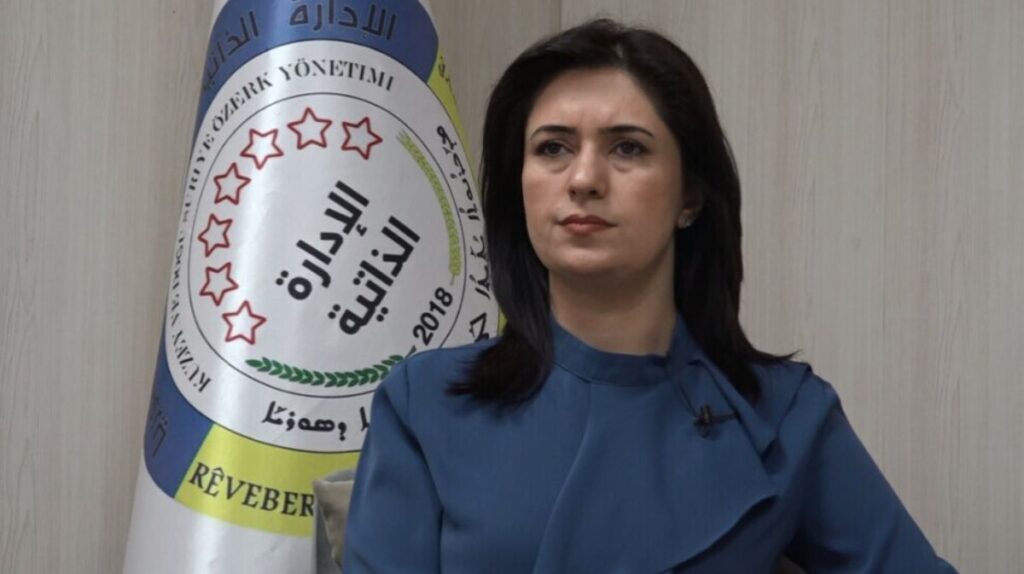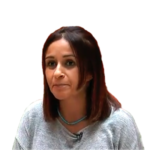11.12.2024 - 02:44
Evin Siwed has been the co-chair of the Executive Council of the Autonomous Administration of North and East Syria (AANES) since the beginning of this year. In the region known by the Kurds as Rojava, key positions are held through dual leadership, ensuring the representation of women and minorities.
Siwed was involved in women’s organizations (Kongra Star) from 2016 to 2021, worked at the Consultation and Diplomatic Research Center until 2022, and represented the Autonomous Administration for two years in the Iraqi Kurdistan region. In this interview, we discuss the perspectives created by the fall of Bashar al-Assad’s regime.
—How do you assess the current situation?
—There was likely an agreement among the hegemonic powers for Syria. The country had been at war for fourteen years. The fall of the regime in less than ten days is no coincidence—quite the opposite. This shows a well-prepared plan that started in the city of Idlib, then Aleppo, Daraa, and Sweida, all the way to the capital, Damascus. This plan must have taken a long time. The fall of the regime has led the country into a new phase of radical and serious changes. It has created a void in the country, which also triggered the collapse of the Syrian pound. After years of war, there is disagreement between all sides; no one accepts the other. The ethnic cleansing carried out in many places is horrifying. Thousands of people live in other people’s homes and loot their properties. This has created a very complicated emergency situation that needs a lot of attention, understanding, and time to resolve.
—After armed groups and members of the Organization for the Liberation of the Levant entered Aleppo, thousands of civilians fled. The AANES has received them. What preparations has the AANES made to handle the displacement crisis in these circumstances? Does it have the capacity to meet the needs of hundreds of thousands of displaced people?
—More than 120,000 people have arrived in our areas. Most of them are from Afrin, Shahba, Tal Rifaat, Aleppo, and even Idlib. Accommodating so many people is not easy. They all fled their city in 2018 due to a Turkish military operation that led to the occupation of their homes. The AANES was not prepared to receive them all at once. This is the second time these people have fled their homes. Many had already spent more than six years in displacement camps. They wanted to return to Afrin, but now they find themselves even further from their city. The AANES opened its doors to them, just as it did for those fleeing the last Israeli-Lebanese conflict.
—Have you received any international support or support from international organizations for the displaced people?
—This area has been under siege and sanctioned by an international embargo for years. The country has been at war for years. Most cities, like Raqqa, where I am now, are destroyed. The war situation continues. We are doing as much as we can to help these people. Direct assistance from individuals and the general public is the most effective and efficient. All citizens have united and supported each other in this situation.
—What are the future plans of the Autonomous Administration in light of the current developments?
—The AANES was established to meet the needs of the people in the region. Those who follow the situation in Syria and North and East Syria know how civilians defended this area. Together, we are building an administration that has already gone through many difficult phases and tests. The most important issue now is to stand firm, continue, and stop Turkey’s attacks. The situation in Manbij is serious. There is a fierce battle. The occupying Turkish state has not stopped attacking us all these years. Now, it is exploiting the void in Syria to intensify its attacks. Its goal was and still is to eliminate the AANES.
—Do you have any information about the women abducted from the Women’s Protection Units (YPJ) and the civilians kidnapped by the factions currently controlling Aleppo?
—They abduct women because they want to break their will. The YPJ will defend its members. As the AANES, we promise to do everything we can to save them.
—Are there relations with the Russians currently?
—Yes. We are in dialogue with all those who have a role in Syria.
—With everything happening in Syria and these radical changes to the country’s map, is there any guarantee for the continuity of the AANES?
—The AANES has existed for years. It occupies a strategically important position and has a population of over five million people. These are all reasons to continue. We must protect our people from all challenges and armed groups. The AANES seeks to represent all communities in a future pluralistic Syria. Today, we are facing attacks and threats. But with the unity of our communities and the support of the population, we will continue. Our communities must unite to strengthen our position in the country’s future.



